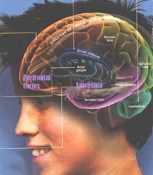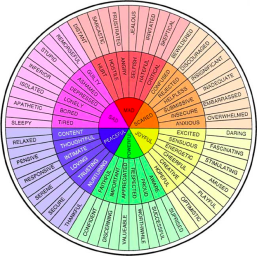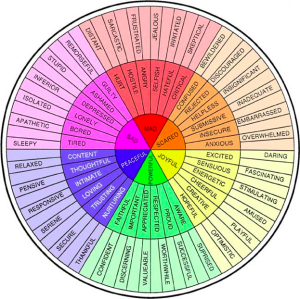By Aliens

The abduction of your teenager might happen all at once in a sudden swoop (like your arm getting chopped off) or it may happen in a more slow and painful fashion (like your eye lashes being plugged out one by one). Overt physical changes are defiantly occurring in your child during adolescence . . . you can see this! However, the tremendous transformation of your child’s brain during adolescence is covert and answers some of the reasons why teens can seem so Dr. Jekyll and Mr. Hyde-ish. Teenage years are full of wonder for parents as you are witness to your teenager’s transformation into adults; however, there are also periods of great exasperation, frustration and confusion while parenting through the sometimes rocky road we call adolescence. Never fear! There is hope because your teenager’s brain will be returned and completely transformed . . . but is a complicated process that apparently only aliens know how to complete.
The Signs

The clearest sign that your child’s abduction has begun is that suddenly you as the once all knowing parent now know nothing. It is quite ego deflating that according to your teenager you have completely lost all intelligence regarding, well . . . pretty much everything.
Next, you have become a true embarrassment to your adolescent especially in public. It kinda creeps up on you though and even if you have heard about this phenomenon it can come as a surprise. Around 10, 11 or 12 years old, your child might start with, “Mom, you really don’t need to come eat with me at school anymore”. Then by 13 or 14 years old you might hear “Mom, if you and Dad come to the orchestra concert can you sit in the back and act like you do not know me”. Really? Yes, even after you have paid for the instrument, lessons, and listened to their practice for heavens sake.
Thirdly, communication becomes a bit complicated. Your child rolls their eyes at you several times a day, they go straight to their rooms when returning home remaining there for hours at a time, your simple requests are met with sighs, hands on the hips, or a whispered ‘whatever’. One of the most confusing parts of communicating with your teenager is when they say, ‘why are you yelling at me?’ when you know that your voice is calm. Or they might say ‘why are you looking at me like that?’ . . . like what? Several reliable and valid research studies have shown that teenagers really do misinterpret facial expressions (http://www.pbs.org/wgbh/pages/frontline/shows/teenbrain/interviews/todd.html).

Fourth, your teenager makes a completely uncharacteristic impulsive decision as if they have lost their brain. Oh, wait a minute, their brain has been abducted. The duplicity of teenagers is revealed when they make an impulsive, irrational decision and then they are able to explain to you why it was not a great plan (either before the event or after).
And finally, their choice of clothes, hair, music, friends, piercings can become quite alien like and frightening; however, these drastic choices are necessary to differentiate from you. In this stage of human development, teenagers must push against their parents to become adults.
What is Really Happening?

A work in progress, the teenage brain
Your teenager’s brain is still under major construction. In fact, neuroscientists now know through the development of Magnetic Resonance Imaging (MRI) brain scans that the human brain is not fully developed until the mid-twenties. The brain developments from the back (the more primal regions) to the front of the brain known as the prefrontal cortex. The limbic system of the brain is responsible for primal emotions (anger, fear and pleasure) is almost fully developed during adolescence. At the same time, the prefrontal cortex is the CEO of the brain in charge of decision making, planning, impulse control and social understanding lacks far behind. What a disastrous combination, right? Think about it . . . the center of the brain responsible for primal emotions is far ahead of the CEO of the brain. No wonder it seems as if your child has been abducted by aliens! Teens are truly at a disadvantage in processing emotions effectively; therefore, they sometimes make very poor, unfiltered, and impulsive decisions . . . no fault of the own. This excellent video explains adolescent brain development in detail: http://youtu.be/hiduiTq1ei8
Tips to Survive the Your Teens Temporary Abduction
Remember that your teen NEEDS you despite what they say or how they act. They need more than ever your unconditional love, affection, supervision, and true compassion. Even if they bristle, still hug them (in private of course). Look for what they are doing right and encourage them . . . remember how fragile they are at this stage of development and how susceptible they are to peer influence. Your love and firm boundaries will see them through this rocky yet exciting stage of life. Even though they might be simply maddening at times; their teenage idealism, inventiveness, extreme dedication to a cause or relationship can be so inspiring!
Talk to your teen about the tough subjects before they are a teenager. This would include your future expectations, the consequences of certain behavior, and what you will be willing to do to help them in certain situations. Topics might include sexuality, alcohol/drug use, supervision (for example, I need to meet and talk to the parents of your friends), possible arrest (yes), and expectations in your home (chores, mutual respect, limits of privacy). Thoughtful, purposeful supervision of your adolescent is paramount! When they ask the inevitable question, ‘why don’t you trust me?’, the easiest answer . . . ‘I trust you, but not your brain’. Boundaries with Teens by Cloud and Townsend is an excellent resource for setting healthy boundaries with your teen. (http://www.amazon.com/Boundaries-Teens-When-Say-Yes/dp/0310270456).
Don’t take anything your teenager says personally. Miguel Ruiz’s describes the spiritual concept of not taking anything personally in his wonderful book, The Four Agreements (http://www.amazon.com/The-Four-Agreements-Practical-Personal/dp/1878424319). When your teen makes a cutting remark, yells at you, slams the door, etc. attempt to remember that you are receiving this treatment because you are the safest person to push against. . . in alien and strange way it is a compliment. Avoid emotional responses to your teenagers outburst and with empathy follow through with discussed consequences for disrespectful communication.
Create a comfortable, fun, welcoming home for your teenager and their friends. Even though it might cost a few extra bucks developing a teen friendly home, you really want your kids to bring their friends to your home whenever possible. Believe me, it solves a lot of worry! We transformed our living room to a game room which was semi-private and geared toward our teenagers. Both of my kiddos played basketball, so we invested in a great outdoor ‘gorilla’ basketball goal (http://www.goalrilla.com/basketball-hoops). Food is always a central theme to hosting teenagers. A willingness to feed the masses will pay off in the long run. The beauty of being a welcoming home to your teen’s friends is that you get to know who they are associating with and honestly (for the most part) teens so much fun to be around!
Rely on your honest support system. Raising teenagers requires the support of friends, family members, and yes . . . possibly a therapist. Surround yourself with other thoughtful, honest and healthy parents of teenagers . . . you are not alone! I asked my wonderful late father once ‘how did you survive my years as a teenager?” His response: “it is like a tight wire, you have to convey unconditional love while at the same time providing firm discipline’. Thanks Dad-E-O! Miss you and love you forever.
Love will See You Through
“Sometime people care too much, I think it’s called love.” Winnie the Pooh
The bottom line to parenting teens is to remember that you love your child with all of your heart. Let love motivate you to learn as much as you can about the developmental phase of adolescence and to be kind to yourself during the roller coaster ride of parenting your adolescent! One day, like me, you will be able to call your adult children your friends. 
.
















































